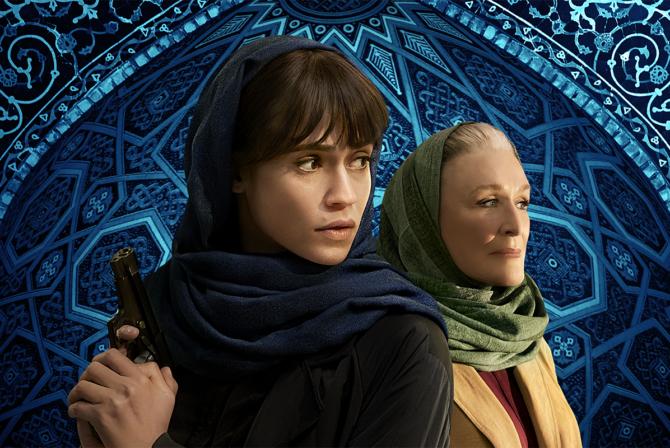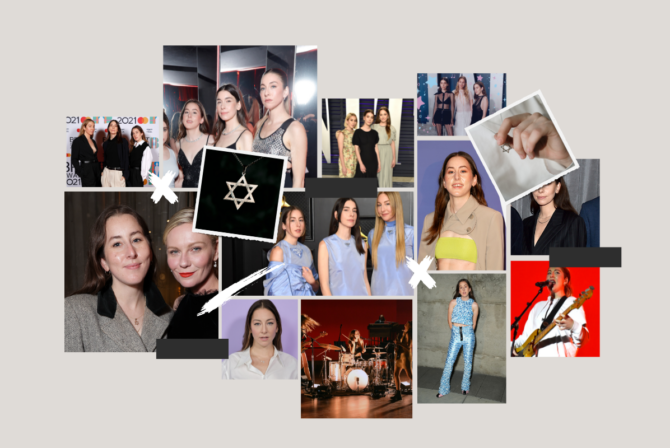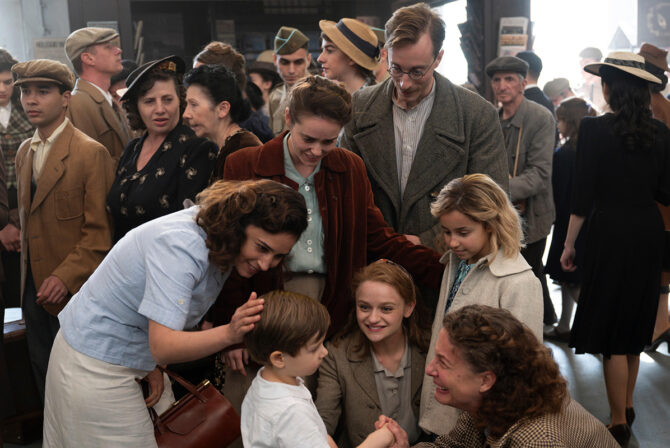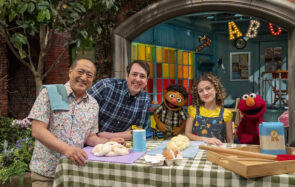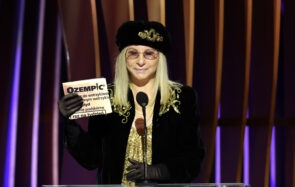David and I met at a furniture expo in Milan. He was an American sculptor and painter, and an observant Jew. I was a French fashion designer and writer, and a not-so-observant Catholic. We were engaged three months after we met and married six months after that.
We settled in a largely Jewish neighborhood on the west coast. Early in our marriage, David’s faith was something I loved about him. I loved his passion for it, I loved how he mentored his nieces and nephews as their faith developed, I loved the ritual and beauty of Shabbat. There was something in the way that faith and observance wove itself through David’s large family that touched me. When our son Benny was born, there was no doubt that he would be raised Jewish. I participated in the religious portion of Benny’s upbringing where it was appropriate for me to do so, but mostly left that part of his life to David.
READ: Avoiding Conflict in an Interfaith Marriage
Then, Benny nearly died.
My parents had come from France to celebrate Benny’s 5th birthday. The night they left, Benny was uncharacteristically quiet. David and I assumed it was just sleepiness and sadness that his Papa and Meme were leaving. The next morning when we went to wake him, Benny’s entire body was bright red and he was feverish. Three hours later he was in the pediatric intensive care unit ravaged with infection. For two days, we weren’t sure if Benny would survive. He remained hospitalized for two weeks.
It was during these two weeks that I realized David had something in his life that I was desperately missing: faith, and the support of his faith community. Nearly every day, somebody from his temple—the rabbi, cantor, or just a family friend—would visit us in the hospital. The visits were never long, but I could see how much peace they brought to David and my in-laws. This is when I decided to reconnect to my Catholic faith.
It was easy for David to be supportive at first, because my faith was something that I practiced on my own. I went to mass once or twice a week while David and Benny did other things. I kept a rosary in my dresser. We remained for all intents and purposes a Jewish family raising a Jewish son. Our balance wasn’t challenged until I indicated that I wanted to take Benny to mass.
David look puzzled. “Why would you do that?” he asked.
“To teach him about my faith,” I responded.
David responded, “He doesn’t need to know about your faith. Benny’s Jewish.”
READ: My Son’s Bris Was Going Fine–Until I Needed to Prove I’m Jewish
I felt like I had been punched in the chest. I saw the regret in David’s face the moment the words left his mouth. He apologized profusely and said that I should absolutely take Benny to mass. It seemed like a small fight, but it created a tiny fissure in our relationship that grew over the next few months. As time passed, I grew resentful because I felt as if my faith was constantly treated as something lesser, an after thought. David was angry because our lives had been fine until I changed everything.
We tried practicing our faiths together by reading and praying, but it became obvious that we couldn’t even find common ground in that. Eventually, we barely spoke. Benny was upset and confused. We were contemplating divorce when we decided to try a counselor who specialized in interfaith marriages. I can only describe what she did for us as truly amazing.
The first thing that our therapist taught David and I was that we weren’t in an interfaith marriage. There was no sharing of traditions or a mutual love of the same God. There was just both of us separately practicing our faiths and pulling our son from one to another without any way for him to integrate the two.
The first sessions were tough. We had a lot of anger to work through. David resented that I had brought a new faith into our home. I was angry that he wasn’t more supportive of me trying to build something for myself that he valued so much for Benny and himself. David was worried that Benny would be confused. I had to confront the fact that there were times that I simply felt lonely and like an outsider not just in my family, but in our community.
We asked our therapist how we should work through all of this anger and resentment. We were stunned at her answer:
“You don’t,” she said. “You either acknowledge each others’ feelings and move forward, or you stay stuck and resentful.” She told us that we had to work towards understanding, learning, and developing confidence in our own faiths, and then creating a household where each person’s faith was respected. We decided to start by attending religious services together as a family.
READ: Apparently My Interfaith Marriage is Too Happy
David attended his first mass on a Saturday evening. I’d offered beforehand to explain to him what would happen during the service, but David brushed me off, assuring me that he would be fine. Before the service, we walked around the church grounds. Benny was, as I suspected he would be, entranced by the stained glass windows and the statues. He wanted to know about the crucifix and the purpose of holy water. I was ready to answer all of those questions, but I didn’t have to. David was able to answer all of Benny’s questions in great detail. At the end of the service when people were lining up to receive communion, Benny wanted to join them. David explained to him that he couldn’t.
I expected David to simply say that Benny wasn’t allowed to take communion because he was Jewish. Instead, David explained to Benny that the people who took communion worked really hard to develop a relationship with God and that they followed certain rules. I was touched that David knew so much about my faith and that he spoke of it so respectfully to our son—but also thoroughly confused.
I found out later that David had arranged a meeting with my priest the week before the service for a bit of a crash course in Catholicism. He explained to me that I had integrated into his family and knew so much about the observances and traditions of Judaism, and that he thought he owed me at least that much in return.
David and I still attend religious services together. I love my faith and my church. I also love seeing our son becoming more and more passionate about his Jewish faith. David welcomes displays of my faith in our home now. I don’t hide my rosary beads in a drawer anymore. I’ve learned to stop feeling like an outsider in my neighborhood and within David’s family, and have reached out to them to create my own community and my own extended family. I wouldn’t want things any other way.
